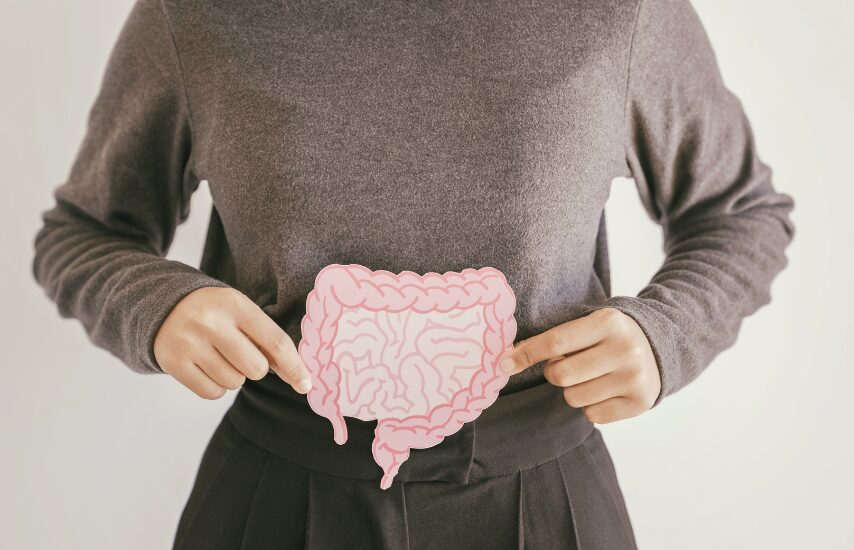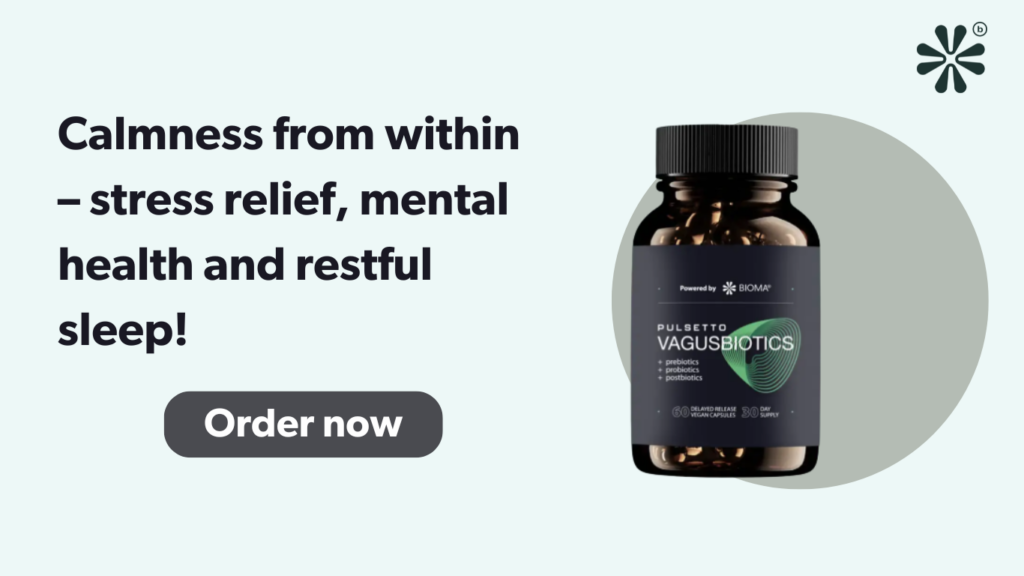How Probiotics Can Reduce Emotional Eating

Emotional eating is a common issue that many people struggle with, where food is used as a way to cope with feelings such as stress, anxiety, boredom, or sadness. While this can offer temporary relief, it often leads to unhealthy eating habits, weight gain, and feelings of guilt. Managing emotional eating can be challenging, but recent studies suggest that probiotics may play a role in helping to reduce emotional eating by improving gut health and regulating emotions.
Probiotics, the “good” bacteria that live in our gut, are best known for their benefits in supporting digestive health. However, emerging research indicates that they also play a significant role in our mental health by affecting the gut-brain connection, a two-way communication network between our gut and brain. This connection is responsible for influencing our emotions, moods, and even behavior. In this article, we will explore how probiotics to regulate emotions may help reduce emotional eating and improve overall mental well-being.

The Gut-Brain Connection and Emotional Eating
To understand how probiotics can help with emotional eating, it’s important to first understand the gut-brain connection. The gut and brain are closely linked through the vagus nerve, which sends signals back and forth between the two organs. In fact, it is estimated that 90% of the signals traveling along the vagus nerve go from the gut to the brain, indicating that the gut has a significant influence on our emotional state and behavior.
The gut is also home to trillions of bacteria that make up the gut microbiome. These bacteria play a crucial role in digesting food, absorbing nutrients, and supporting the immune system. More recently, scientists have discovered that gut bacteria can influence our mental health. The microbiome produces a variety of compounds, including neurotransmitters like serotonin, which is often referred to as the “feel-good” hormone. Approximately 90% of serotonin is produced in the gut, and this neurotransmitter plays a key role in regulating mood, appetite, and sleep.
An imbalance in the gut microbiome, also known as dysbiosis, has been linked to a variety of mental health issues, including anxiety, depression, and emotional eating. When the gut bacteria are imbalanced, it can cause disruptions in the production of neurotransmitters, leading to mood swings, increased cravings for comfort food, and difficulty managing stress or emotions.
This is where probiotics come in. Probiotics are live microorganisms that, when consumed in adequate amounts, provide health benefits, particularly for the gut. Probiotics can help restore the balance of beneficial bacteria in the gut, support serotonin production, and reduce inflammation, all of which may help regulate emotions and reduce emotional eating.
How Probiotics Can Help Reduce Emotional Eating
- Balancing the Gut Microbiome
The first step in using probiotics to manage emotional eating is to restore balance to the gut microbiome. An imbalance of gut bacteria can result in cravings for unhealthy foods, especially high-sugar and high-fat comfort foods. These foods may temporarily boost serotonin levels, providing emotional relief, but they can also contribute to weight gain and poor mental health in the long run.
Probiotics work by replenishing the beneficial bacteria in the gut, improving the balance of the microbiome. By restoring this balance, probiotics can help regulate the production of serotonin and other mood-related neurotransmitters, which may reduce cravings for comfort foods and help individuals better manage their emotions.
- Reducing Stress and Anxiety
One of the key factors driving emotional eating is stress. When we experience stress, our body releases the hormone cortisol, which can trigger cravings for sugary, fatty foods as a way of coping. Probiotics have been shown to help regulate cortisol levels by supporting the gut-brain connection.
Several studies have found that certain strains of probiotics, such as Lactobacillus rhamnosus and Bifidobacterium longum, can help reduce stress and anxiety. These probiotics help promote the production of GABA (gamma-aminobutyric acid), a neurotransmitter that has a calming effect on the brain. By reducing anxiety and stress, probiotics may make it easier to resist emotional eating triggers and help individuals adopt healthier coping mechanisms.

- Improving Mood and Mental Health
Mental health plays a significant role in emotional eating. When people are feeling sad, depressed, or anxious, they may turn to food for comfort. Probiotics have been shown to improve mood and mental well-being by promoting the growth of beneficial bacteria in the gut. These bacteria produce compounds that can help regulate neurotransmitter production and support the production of serotonin, which in turn helps boost mood and reduce negative emotional states.
In particular, Lactobacillus rhamnosus and Bifidobacterium infantis are two strains of probiotics that have been shown to improve mood and reduce symptoms of depression. By improving mood and reducing emotional distress, probiotics may help reduce the desire to eat for emotional relief and encourage healthier eating habits.
- Supporting Healthy Digestion
Another factor that can contribute to emotional eating is digestive discomfort. When the digestive system is out of balance, it can lead to bloating, constipation, and other gastrointestinal issues that may make an individual feel irritable or anxious. Probiotics are well-known for their ability to support digestive health by promoting a healthy gut microbiome, improving nutrient absorption, and reducing inflammation in the digestive tract.
By supporting healthy digestion, probiotics may help alleviate some of the discomfort that leads to emotional eating. When people feel physically better and experience less digestive discomfort, they may be less likely to turn to food as a source of comfort.

The Best Probiotics to Regulate Emotions
When it comes to choosing probiotics for emotional eating, there are several strains that have been shown to be particularly effective at supporting mental health and regulating emotions. Here are some of the best probiotics to regulate emotions:
- Lactobacillus rhamnosus: This strain has been shown to reduce symptoms of anxiety and stress by influencing the production of neurotransmitters like GABA. It’s a great option for those looking to reduce emotional eating triggered by stress or anxiety.
- Bifidobacterium longum: This strain is known for its ability to reduce symptoms of depression and improve overall mood. It can help balance gut bacteria, promote serotonin production, and regulate emotions.
- Lactobacillus acidophilus: Lactobacillus acidophilus is one of the most well-known probiotics and has been shown to improve gut health and reduce feelings of anxiety and depression, both of which can lead to emotional eating.
- Bifidobacterium infantis: This strain has been found to improve mood and reduce symptoms of depression. It helps balance the gut microbiome and promote overall mental well-being, making it a great choice for reducing emotional eating.
- Saccharomyces boulardii: This probiotic yeast has been shown to support digestive health, reduce inflammation, and promote a healthy gut microbiome. By supporting gut health, Saccharomyces boulardii can help reduce cravings caused by digestive discomfort and improve emotional well-being.
Using Probiotics to Combat Emotional Eating
Emotional eating can be a complex issue influenced by stress, anxiety, depression, and digestive discomfort. However, by restoring balance to the gut microbiome with probiotics, it is possible to regulate emotions and reduce the desire to turn to food for comfort. Probiotics help balance gut bacteria, support the production of serotonin, reduce stress and anxiety, and improve mood—factors that are all essential in combating emotional eating.
If you struggle with emotional eating, consider incorporating probiotics like Lactobacillus rhamnosus, Bifidobacterium longum, and Lactobacillus acidophilus into your daily routine. A complete synbiotic like Vagusbiotics delivers these beneficial strains along with prebiotics and postbiotics to support gut-brain balance, mood regulation, and emotional resilience.

Alongside healthy lifestyle choices, these probiotics may provide the support you need to manage your emotions and adopt healthier eating habits. As always, it’s important to consult with a healthcare provider before starting any new supplement to ensure it’s right for you. With the right probiotics, you can restore balance to your gut, improve your mental well-being, and take control of emotional eating.
Related articles






